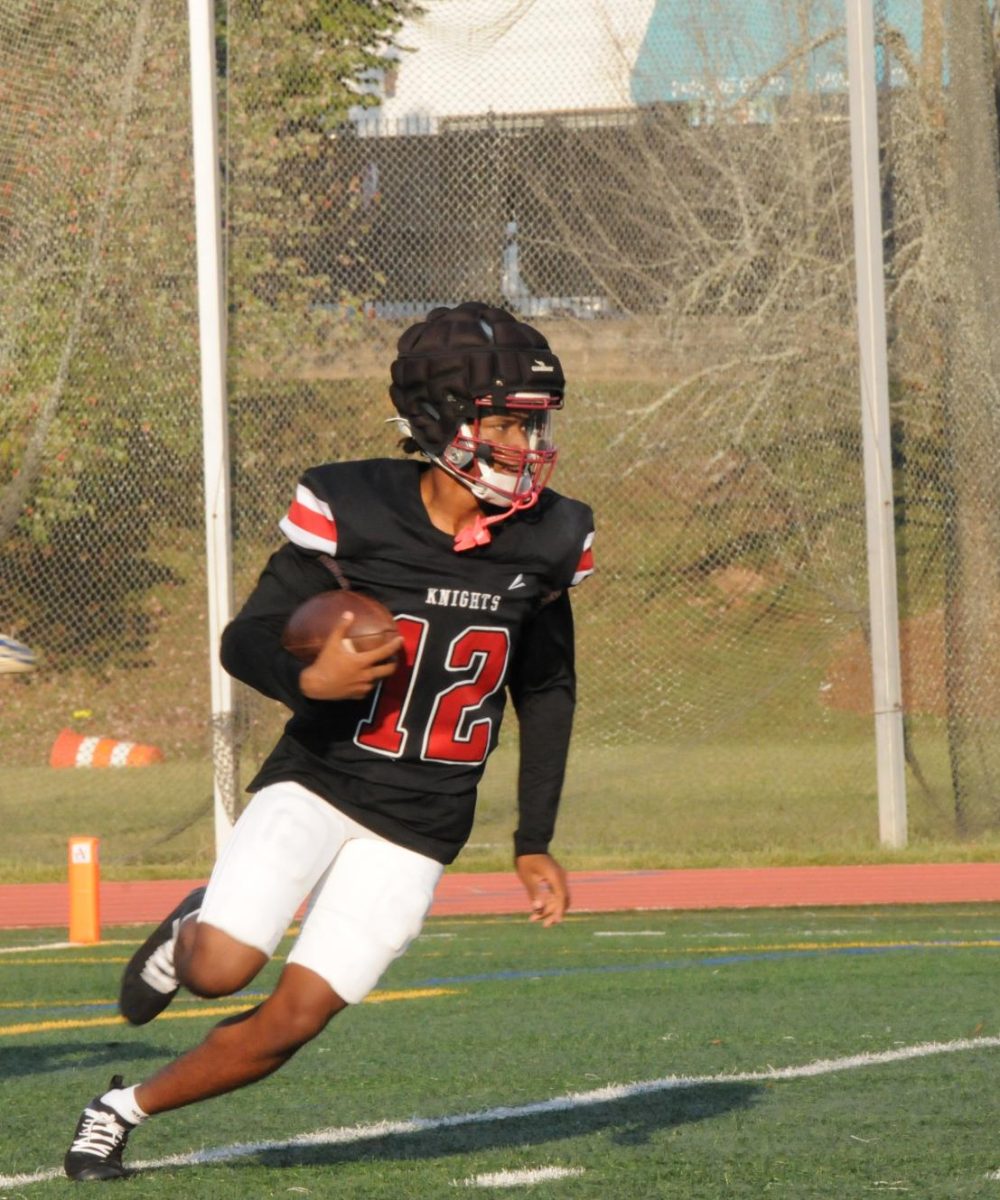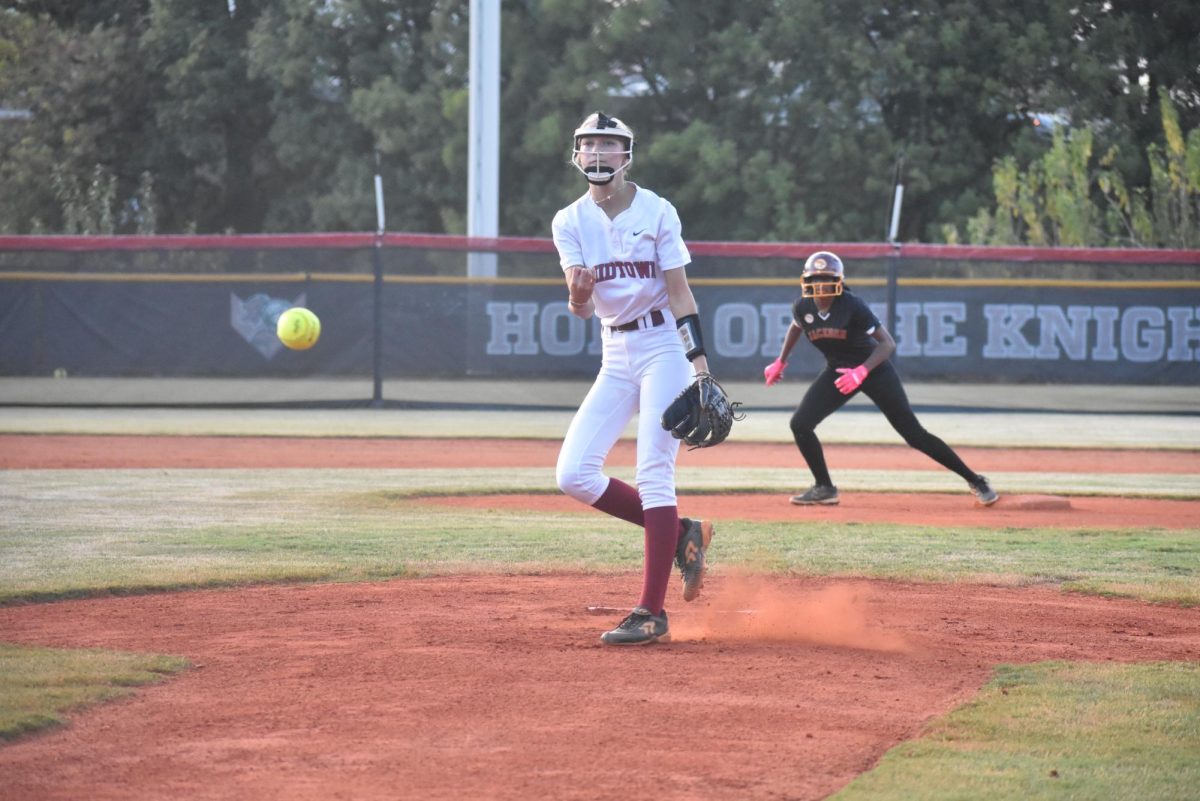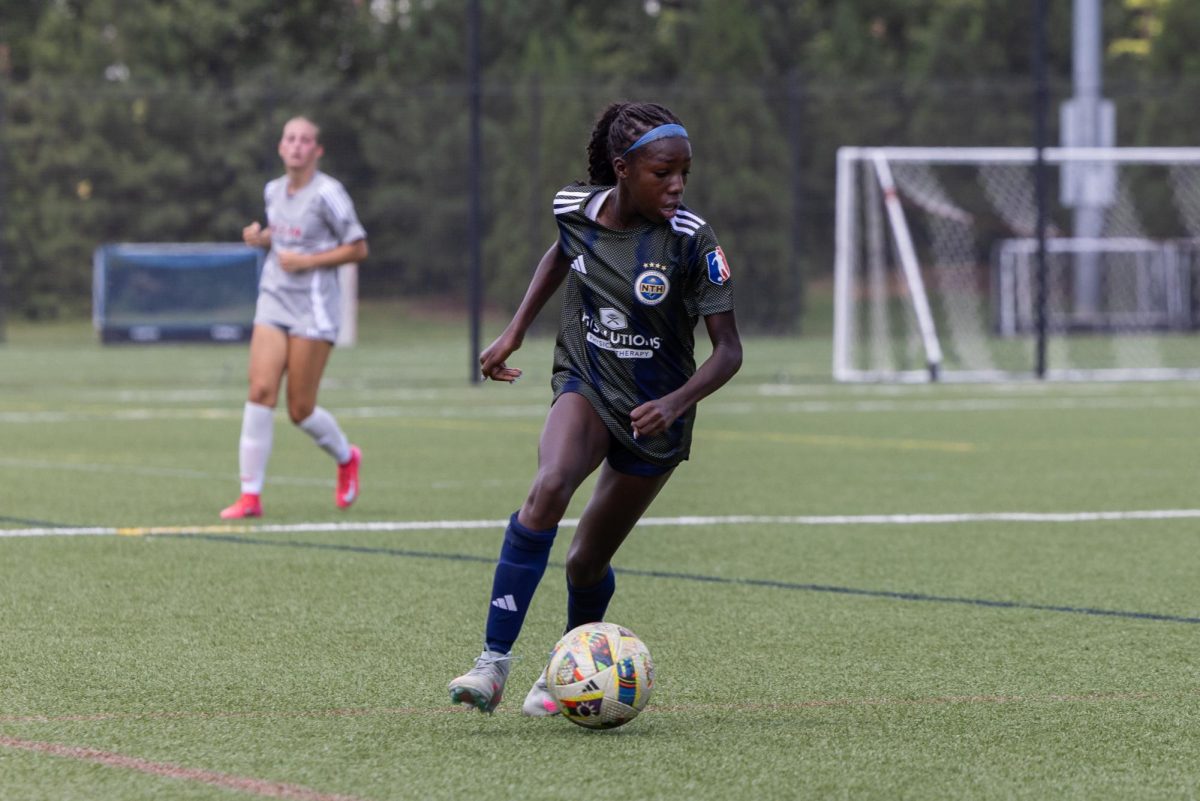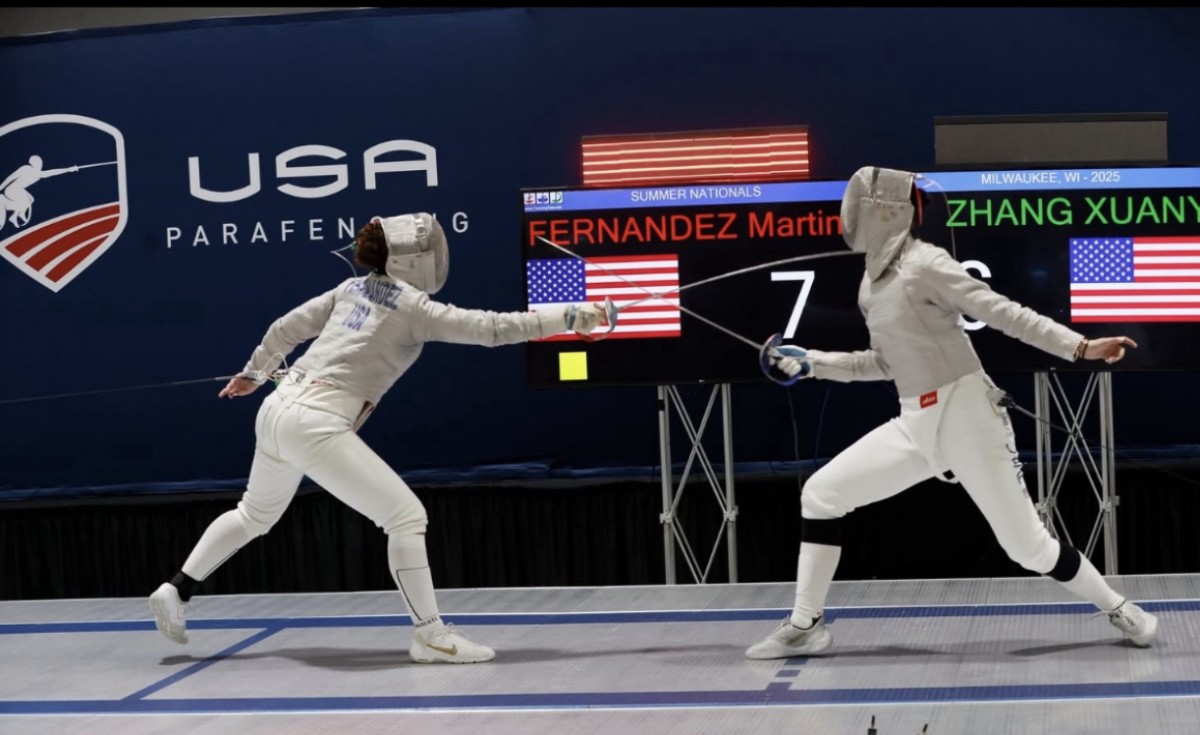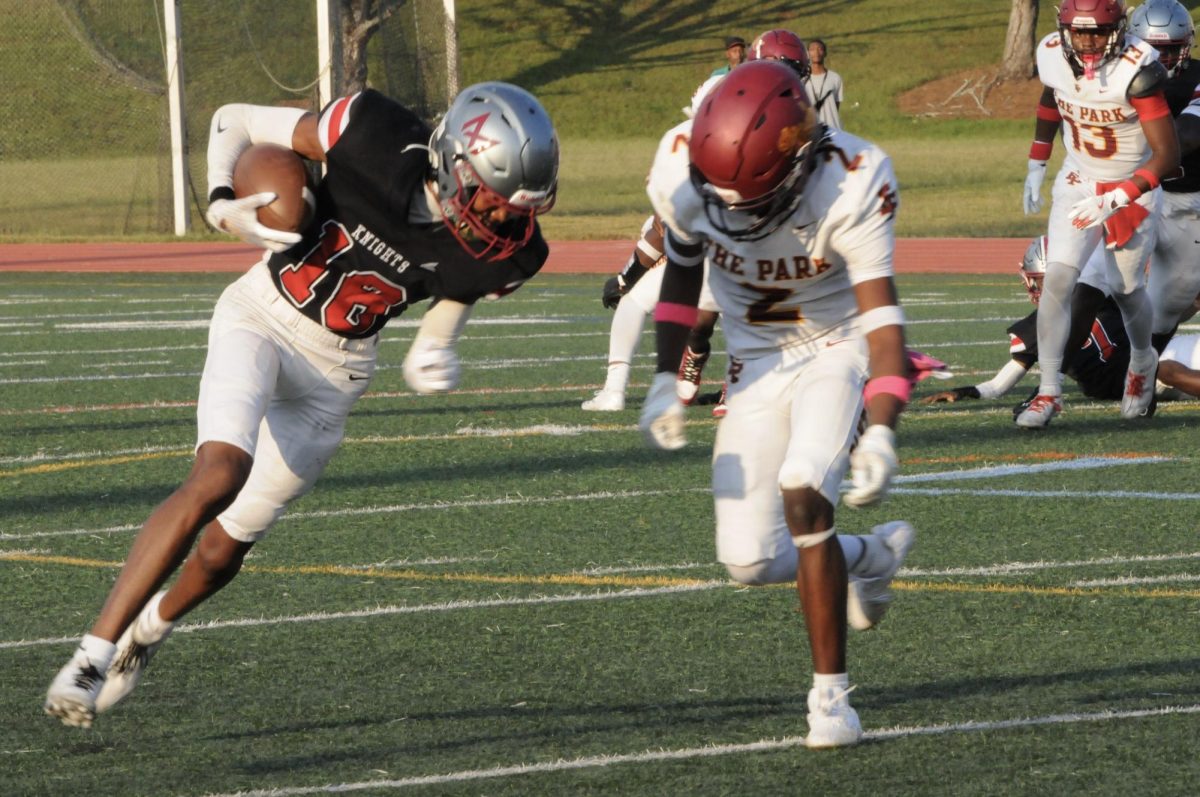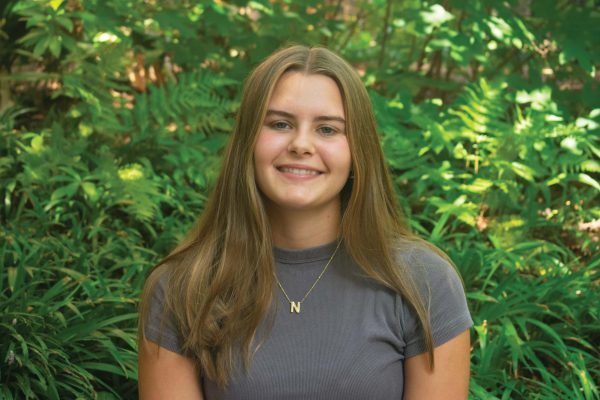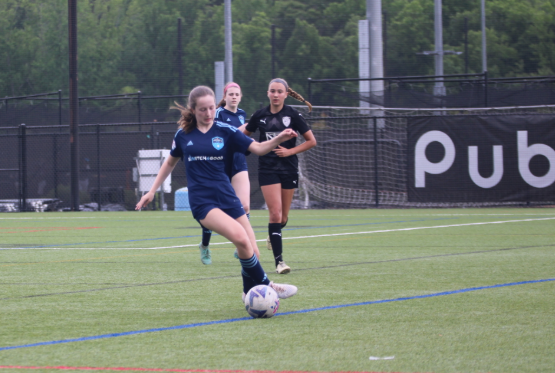
Freshman Lark McCormack tore her acute cruciate ligament (ACL) in April 2023 in the finals of her soccer tournament. After a year recovery, McCormack returned playing in May 2024, just to retear it on the same day.
“The first time around I always had the hope of coming back but I told myself if it ever happened again, I would quit,” McCormack said. “So the second time felt even more devastating because it kinda felt like my body was failing me, and that hope wasn’t really there as much anymore.”
McCormack said adjusting mentally has been tough. Growing up playing with her teammates and then having to watch from the sidelines has been hard for her to adjust to.
“These injuries just feel so isolating,” McCormack said. “Watching my teammates get to play the sport we’ve all grown up on really sucked. As much as I wanted to go support them, being on the sidelines hurt.”
McCormack said this injury might put her out of high school soccer, forever ending her soccer career. After two previous injuries, McCormack said it would be hard to go through the recovery process for a third time.
“I’m not fully decided, but I realistically will not play Midtown soccer as much as it sucks to admit,” McCormack said. “I mean I literally re-tore it kind of immediately and the thought of having to go through this a third time is really difficult.”
Sarah McCormack, McCormack’s mom, said McCormack’s outlook on soccer and sports has changed since the injuries. She said that it is worth considering whether the benefits of continued play outweigh the potential impact of a devastating injury.
“For Lark’s body, the price of continued play is too high,” Sarah McCormack said.
The expected ACL recovery time in youth girls is 9-12 months. After tearing it once, the likelihood is 30-40 times greater risk of an ACL injury compared with uninjured adolescents. With two previous tears, McCormack is at an even higher risk.
“ACL tears are definitely painful both mentally and physically,” McCormack’s teammate, Izzy Zyglis said. “They can put people out for over a year, and we really miss Lark. It’s been such a long time since she has been able to play with us.”
Despite the limitations that have come with this injury, McCormack has turned to running as a form of exercise. McCormack said she plans to run track for Midtown in the spring.
“Running has a way of just clearing your head, and when I finally got to do it the first time it felt great to be back out there,” McCormack said. “When I did track last year, it felt so good to finally be a part of a team again after so long of missing that.”
McCormack plans to join the cross country and track team for her four years at Midtown. Ross Lawrence, McCormack’s old club soccer coach said that incorporating exercise back into her life is important.
“Without soccer, now finding another way for her to exercise is important for Lark both physically and mentally,” Lawrence said.
McCormack’s surgery and recovery processes have been extensive. During her first surgery, McCormack used her quad tendon as a new ACL. However, after the immediate retear, her doctors recommended using her patella tendon instead as a replacement. McCormack said that with hyperextended knees, this was the better option.
“In hindsight this has been better because I have hyperextended knees and patella is better for that,” McCormack said. “The second surgery though was way easier, I felt so much less pain and knew what to expect.”
Sarah McCormack said that her injuries have taught McCormack that doing everything that you should the way that you should does not always lead to the wished-for outcome. She said that she hopes McCormack can find happiness and validation in other ways and not just be focused on soccer.
“I want her to find Lark-tailored happiness, whatever that looks like,” Sarah McCormack said. “I want her to have agency and power over her own future, and to find means of validation that are not necessarily toggled to other people’s benchmarks or tied to other people’s judgment.”
Sarah McCormack said that McCormacks recovery process has involved both physical and mental health. Throughout the process she said that McCormack has stayed very strong, willing herself forward every step of the way.
“She has stayed motivated during rehab just because that is who my little girl is,” Sarah McCormack said. “She figures out how to power through. She lets herself cry when she needs to, but she is as tough as nails.”







